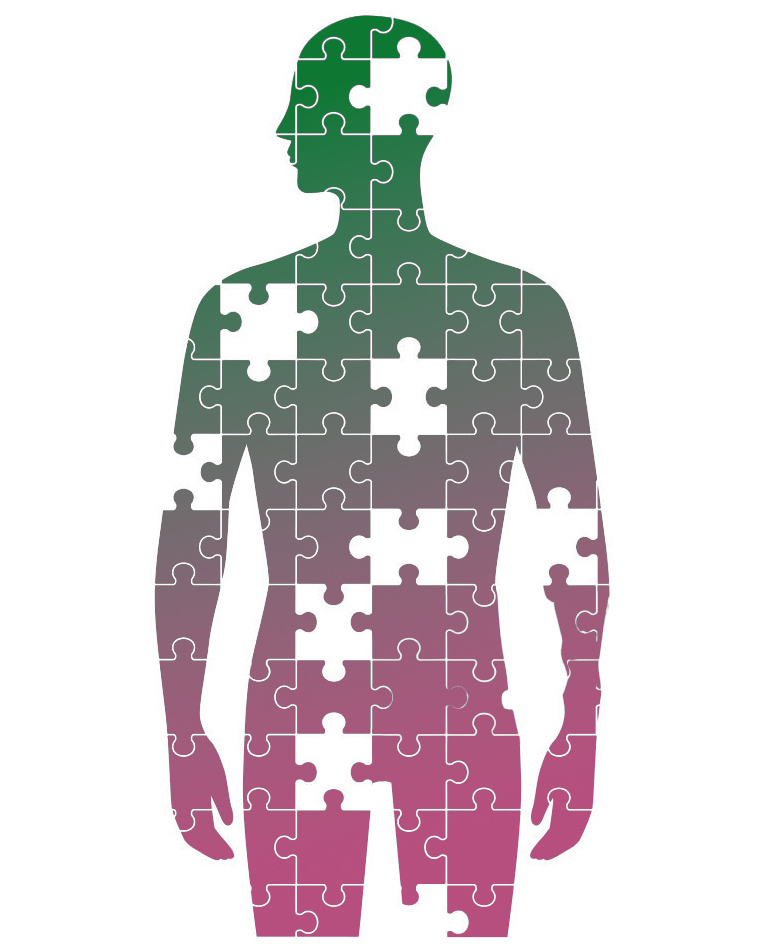Integrative/Functional Medicine
Integrative medicine or functional medicine is classically defined as ‘relationship-centered care that focuses on the whole person, making use of all appropriate therapeutic approaches, healthcare professionals and disciplines to achieve optimal health and healing, including evidence-based complementary and alternative medicine.’
Based on this definition, there are four major principals that an integrative practitioner must adhere to:
1- Use the innate healing power of the body to support and facilitate that natural capacity.
2- View and treat the patient as a whole physical/emotional/mental and spiritual member of a community and society. This self-healing power of the body decreases with aging and is at its peak during childhood and adolescence.

3- Implement the necessary lifestyle changes. Lifestyle changes are a cornerstone of this model since the state of our health is the result of interactions between genes and our environment. Diet, physical activity, stress, sleep, rest, fulfilling relationships, work, and school etc. are examples of aspects of lifestyle that are addressed during the development of treatment plans.
4- Fully utilize the critical healing power of the doctor-patient/parents relationship. The importance of the healing relationship between a physician and the patient is a well-known fact which, due to the managed care environment, has taken a back seat in the current western way of therapy.
In other words, integrative medicine is healing-oriented medicine that focuses on the ‘whole’ individual (body-mind-spirit) as well as all aspects of lifestyle, making use of appropriate therapies, both conventional and alternative. Based on this model, the physician takes the time to listen and understand the parents’ ideas and choices and incorporates their feedback into the treatment plan.
The typical western medicine model of symptomatic treatment of patients is redirected toward preventive care so that symptoms have less of a chance to develop in the first place. The common and overuse of medications especially antibiotics are replaced with prudent use of medications complemented with nutritional therapies, herbs, and supplements.
The field of integrative medicine is rapidly developing and growing, and it is exciting to be at the forefront of this new field. The limitations posed by the current western model of medicine and the ensuing frustrations have encouraged us to look at human health and illness from a different and more comprehensive perspective. The consumers, too, are demanding a more comprehensive approach to their health.
The current medicine model is at crossroads and needs reinvention. The integrative medicine model is at the forefront of building such an alternative model by creating a more holistic, patient-specific, less invasive approach with the focus on preventive care.
This model, besides conventional medicine, integrates and utilizes multiple different healing modalities from a cross-section of therapeutic models some of which may include:
Acupuncture
Aromatherapy
Environmental and body detoxification
Exercise medicine
Functional medicine
Herbal and supplements
Homeopathy
Massage and Chiropractic therapies
Mind-body medicine
Naturopathic medicine
Nutritional and diet therapy
Osteopathic medicine
To schedule an appointment please contact us
Carolina Integrative Clinic
254 Towne Village Dr, Cary, NC 27513, United States
Email: office@ciclinic.com
Tel: (919) 869-6661
Fax: (919) 301-9349
